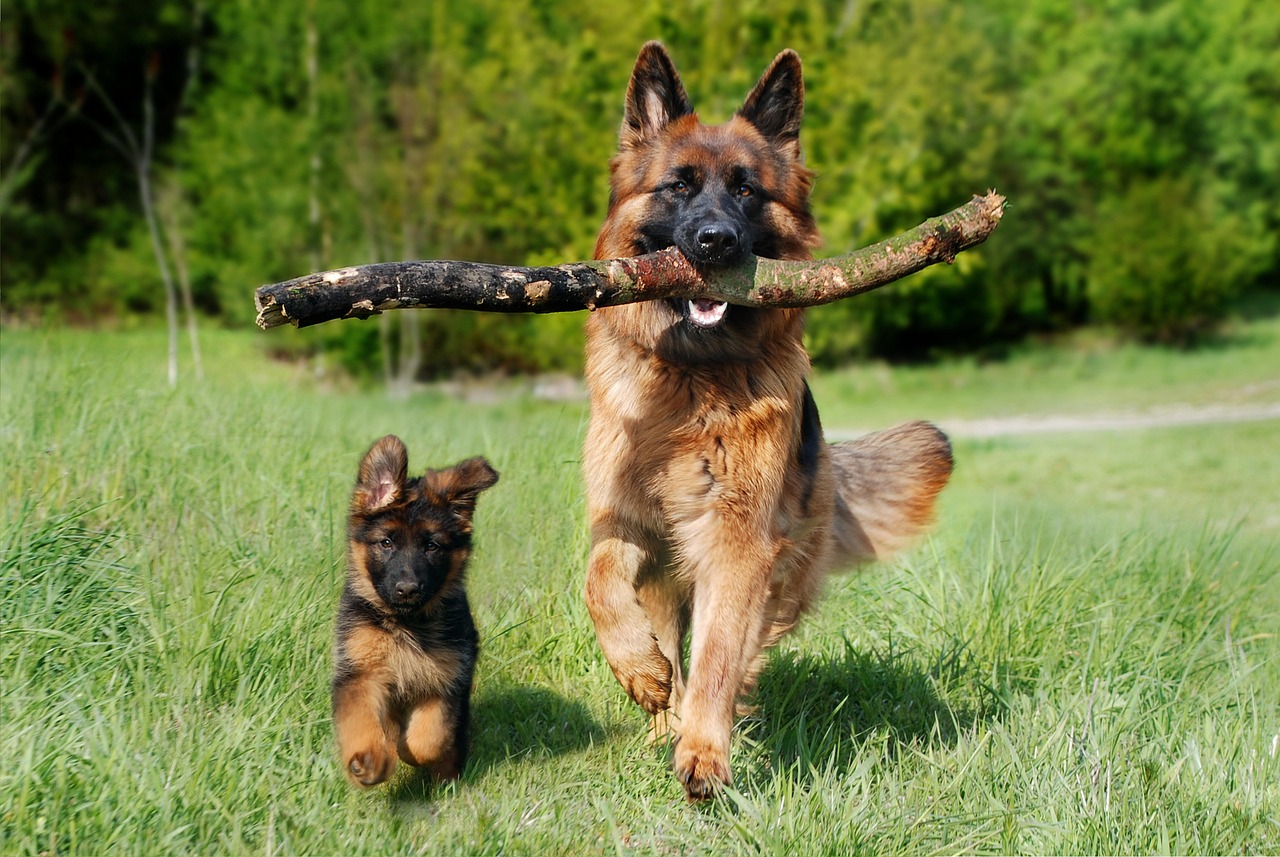Welcome to our blog dedicated to dog reviews! Here, we dive into the world of canine companions, providing insights on various breeds, products, and training techniques. Whether you’re a seasoned dog owner or considering adding a furry friend to your family, our reviews will help you make informed decisions. Join us as we share tips, experiences, and recommendations tailored for dog lovers. Let’s explore in detail below!
Understanding Dog Breeds
The Importance of Breed Selection
Choosing the right dog breed is crucial for a harmonious relationship between you and your furry companion. Different breeds come with distinct temperaments, energy levels, and care requirements. For instance, high-energy breeds like Border Collies require ample exercise and mental stimulation, while more laid-back breeds like Bulldogs may be content with less activity. Understanding the characteristics of each breed can help prospective dog owners select a pet that fits their lifestyle and household dynamics.
Popular Breeds and Their Traits
Some breeds have gained popularity due to their friendly nature, intelligence, or unique appearance. Labrador Retrievers are often celebrated for their outgoing disposition and versatility as family pets or working dogs. On the other hand, Dachshunds are known for their quirky personalities and loyalty. Each breed has its unique set of traits that can significantly impact the owner’s experience, so it’s essential to research thoroughly before making a decision.
Adoption vs. Buying from Breeders
When considering bringing a dog into your home, you have two primary options: adopting from a shelter or purchasing from a breeder. Adoption can provide a loving home to a dog in need while supporting animal welfare efforts. Conversely, buying from a reputable breeder ensures that you are aware of the dog’s lineage and health history. Each choice has its merits; understanding these factors can help you make an informed decision that aligns with your values.
Essential Dog Care Products
Must-Have Supplies for New Dog Owners
Equipping your home with the necessary supplies is essential for welcoming a new dog into your life. Basic items include food and water bowls, high-quality dog food tailored to your pet’s age and size, comfortable bedding, and appropriate toys for mental stimulation. Ensuring that you have these essentials will create a safe and welcoming environment for your new furry friend.
Grooming Tools You Can’t Ignore
Regular grooming is vital for maintaining your dog’s health and hygiene. Depending on the breed, grooming needs can vary significantly. Long-haired breeds may require brushes designed to prevent matting, while short-haired dogs might benefit from shedding tools to keep their coat healthy. Investing in quality grooming supplies not only enhances your dog’s appearance but also strengthens the bond between you through regular care sessions.
Training Aids That Make a Difference


Training aids such as clickers, treat pouches, and training collars can facilitate effective communication between you and your dog during training sessions. Positive reinforcement techniques often yield better results than punitive measures; therefore, having the right tools at hand can make training more enjoyable for both parties. Additionally, incorporating various training aids can help address specific behavioral issues effectively.
Training Techniques for Dogs
The Basics of Obedience Training
Obedience training is foundational for any dog owner looking to cultivate good behavior in their pet. Teaching basic commands such as “sit,” “stay,” and “come” establishes clear expectations for your dog’s behavior and fosters safety in various situations. Consistency is key in this process; using positive reinforcement techniques will encourage your dog to respond positively to commands over time.
Advanced Training Methods

Once basic obedience is mastered, many owners choose to explore advanced training methods such as agility or scent work. These activities not only provide physical exercise but also engage your dog’s mind in stimulating ways. Engaging in advanced training can strengthen the bond between you and your pet while providing an outlet for their energy and instincts.
Tackling Behavioral Issues
Every dog owner may face behavioral challenges at some point, whether it be excessive barking, chewing furniture, or leash pulling during walks. Identifying the root cause of these behaviors is crucial in addressing them effectively. Consulting with professional trainers or utilizing resources focused on canine behavior can provide valuable insights into correcting unwanted habits while fostering a positive relationship with your pet.
Nutritional Needs of Dogs
A balanced diet is fundamental to ensuring your dog’s overall health and well-being. Various types of diets exist—dry kibble, wet food, raw diets—and each has its advantages depending on factors such as age, breed size, activity level, and any specific health concerns. Consulting with a veterinarian can help determine which diet best suits your dog’s individual needs while ensuring they receive all essential nutrients.
In addition to a well-rounded diet, some dogs may benefit from nutritional supplements aimed at addressing specific health concerns or enhancing overall wellness. Common supplements include omega fatty acids for skin health or glucosamine for joint support in older dogs. It’s important to approach supplementation carefully; discussing options with a veterinarian ensures that you choose products that will truly benefit your pet without causing adverse effects.
Food allergies can affect dogs just as they do humans; recognizing symptoms early is key to managing dietary issues effectively. Signs may include gastrointestinal upset or skin irritations after consuming certain foods. If you suspect allergies in your dog’s diet, consulting with a veterinarian can lead to appropriate testing and dietary adjustments that promote better health outcomes.
Socialization Tips for Dogs

Introducing puppies to various environments, people, and other animals at an early age helps them develop into well-adjusted adults capable of navigating diverse situations calmly. Early socialization reduces anxiety around unfamiliar stimuli later in life; thus exposing them to different experiences within the critical window of development is essential.
When socializing your dog, it’s vital to create positive experiences that encourage confidence rather than fear or aggression towards new encounters. Gradually introducing them to new people or animals while rewarding calm behavior reinforces positive associations with these experiences over time.
Socialization shouldn’t stop once adulthood is reached; continuous exposure helps maintain good behavior throughout life stages as circumstances change—new environments arise or other pets join the family dynamic—leading owners towards richer relationships built on trust between themselves and their beloved companions.
Regular veterinary visits are crucial for maintaining optimal health in dogs throughout their lives—from puppyhood through senior years—ensuring vaccinations are current while monitoring weight changes indicative of underlying issues requiring attention sooner rather than later! Your vet will guide preventive care tailored specifically based upon individual needs!
Certain breeds exhibit predispositions toward specific health problems; being aware allows proactive measures! For example: larger breeds tend toward hip dysplasia while smaller ones might encounter dental concerns! Understanding potential risks empowers owners when choosing suitable treatments!
In closing
As you embark on the journey of dog ownership, understanding the various aspects of caring for your canine companion is vital. From selecting the appropriate breed to ensuring proper nutrition and training, each element plays a crucial role in fostering a fulfilling relationship. Remember that every dog is unique, and being attuned to their individual needs will contribute significantly to their happiness and well-being.
Further reference material
1. The American Kennel Club (AKC) provides extensive resources on different dog breeds and their characteristics.
2. Local animal shelters often have valuable information on pet adoption and responsible ownership.
3. Veterinary clinics can offer insights into nutritional needs and health care for various breeds.
4. Training classes or workshops are great for learning effective techniques and building a bond with your dog.
5. Online forums and communities can connect you with other dog owners for shared experiences and advice.
Summary in brief
Caring for a dog requires careful consideration of breed selection, proper nutrition, and ongoing training. Understanding your dog’s unique traits and needs will ensure a harmonious relationship throughout their life. By prioritizing socialization, health care, and positive experiences, you can create a nurturing environment that supports your furry friend’s well-being while enriching your own life as a devoted pet owner.






